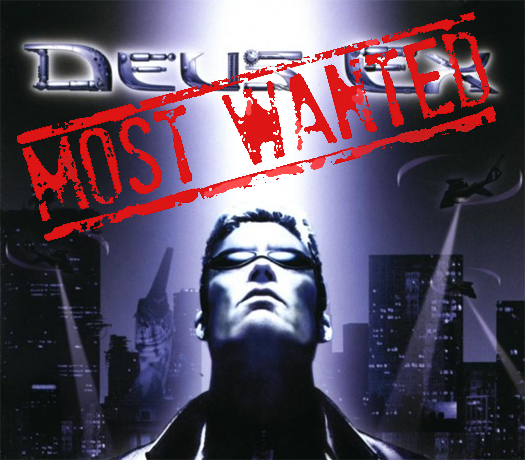 14 years ago
14 years ago
XBLA’S Most Wanted: Deus Ex
Before Deus Ex: Human Revolution graced our consoles and reignited our admiration for the FPS/RPG hybrid, there was its predecessor (technically, the second iteration of the series) Deus Ex on the PC that basically created it. Gamers at the time were delighted to discover a game similar–mechanically and atmospherically–to System Shock, but intrigued by a storyline complex enough to challenge contemporary literature. It confronted the social implications of human augmentation as well as the overarching status of the fictional political stage in America–a future rife with corruption and conspiracies but also feuding organizations bent on national hegemony.
You play as J.C. Denton, a government agent of the United Nations Anti-Terrorist Coalition (UNATCO). Denton is your typical anti-hero equipped with a raspy voice and a general curiosity that gets him into many sticky situations. But what makes Deus Ex so great is how it allows the player to approach these scenarios. For example, if the game shoves you into a seedy section of Hong Kong and requires you to bypass a dozen or so criminal types, you can go gung-ho and blast your way through, hack a door that leads to a side entrance, silently take down your foes or even dive into a pool of water and avoid the gunfire all together–all of which lead to the goal of that particular level. The game is about choice.

